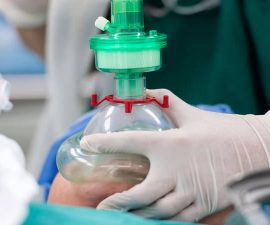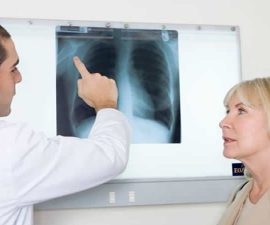… Continued …
- The stage of the disease, how far it has caused damage to the lung.
- How well the lungs are functioning.
- And how well the patient responds to and follows the treatment plan.
For more information about the prognosis and life expectancy of emphysema, see in here!
Treatment options
Again, the damaged alveoli due to emphysema are permanent (irreversible). But the treatment can help control the disease and prevent the complications.
The treatment can involve medications or just with some lifestyle measures, depending on the severity of the disease. In more severe case, surgery may be required.
The single most important thing to remember is to stop and avoid tobacco smoke. Quitting smoking (if you’re a smoker), can significantly slow the progression of the disease and improve the symptoms.
Although shortness of breath usually worsens on exertion, especially when the disease flares up, but this doesn’t mean that you can skip your exercise. However, exercise is important to strengthen the breathing muscles and improve the overall health of your lung. When you think ready for exercise, do it regularly!
To help relieve shortness of breath, medications such as inhalers may be required to help open the airways and relax the lung. If you have a sudden worsening with increased breathlessness, anti-inflammatory steroids may be prescribed.
Surgery is rarely used for emphysema treatment. But sometimes it’s suggested when the doctor think that removing the damaged areas of the lung can help relieve shortness of breath or other symptoms of the disease, and make it easier for breathing. One of procedures for this goal is called lung volume reduction surgery. In this procedure, specialist will remove the most severely damaged portion of the lung.
In a few cases, lung transplantation is also suggested. This is particularly true if other treatments fail to work.




